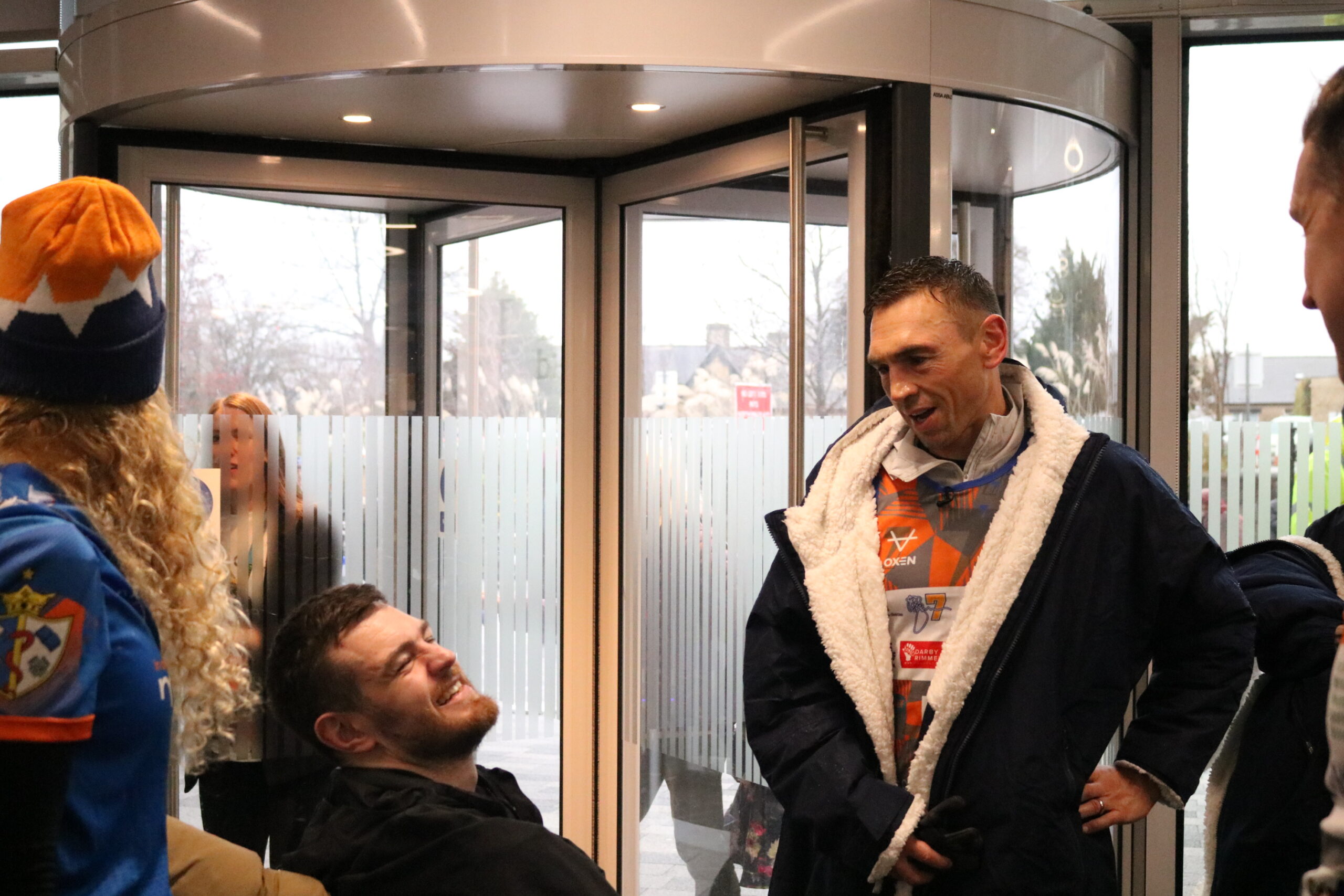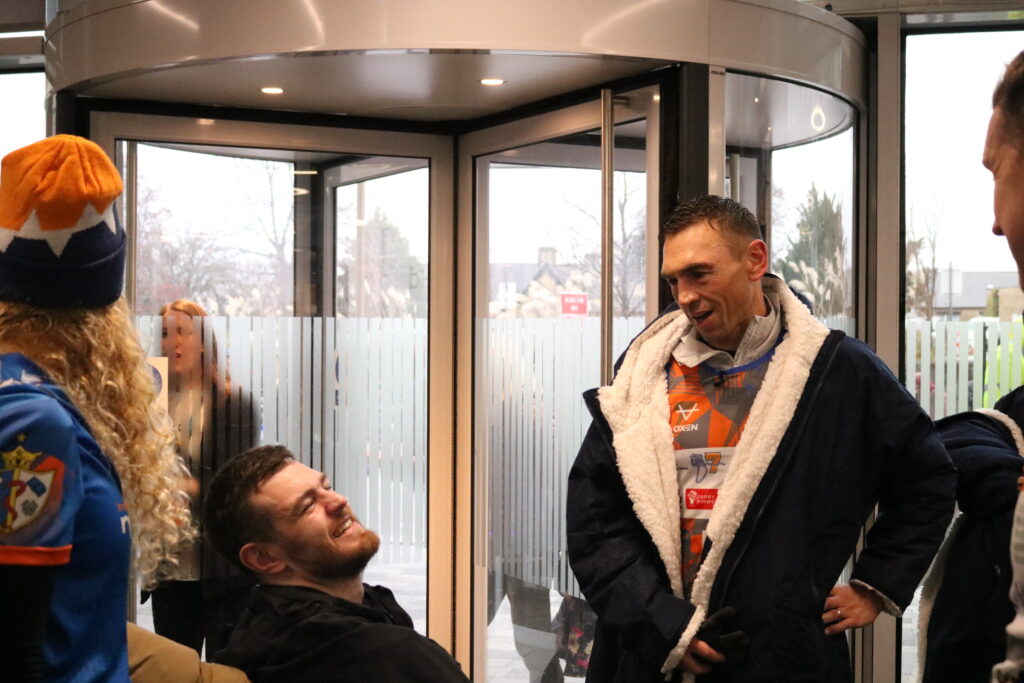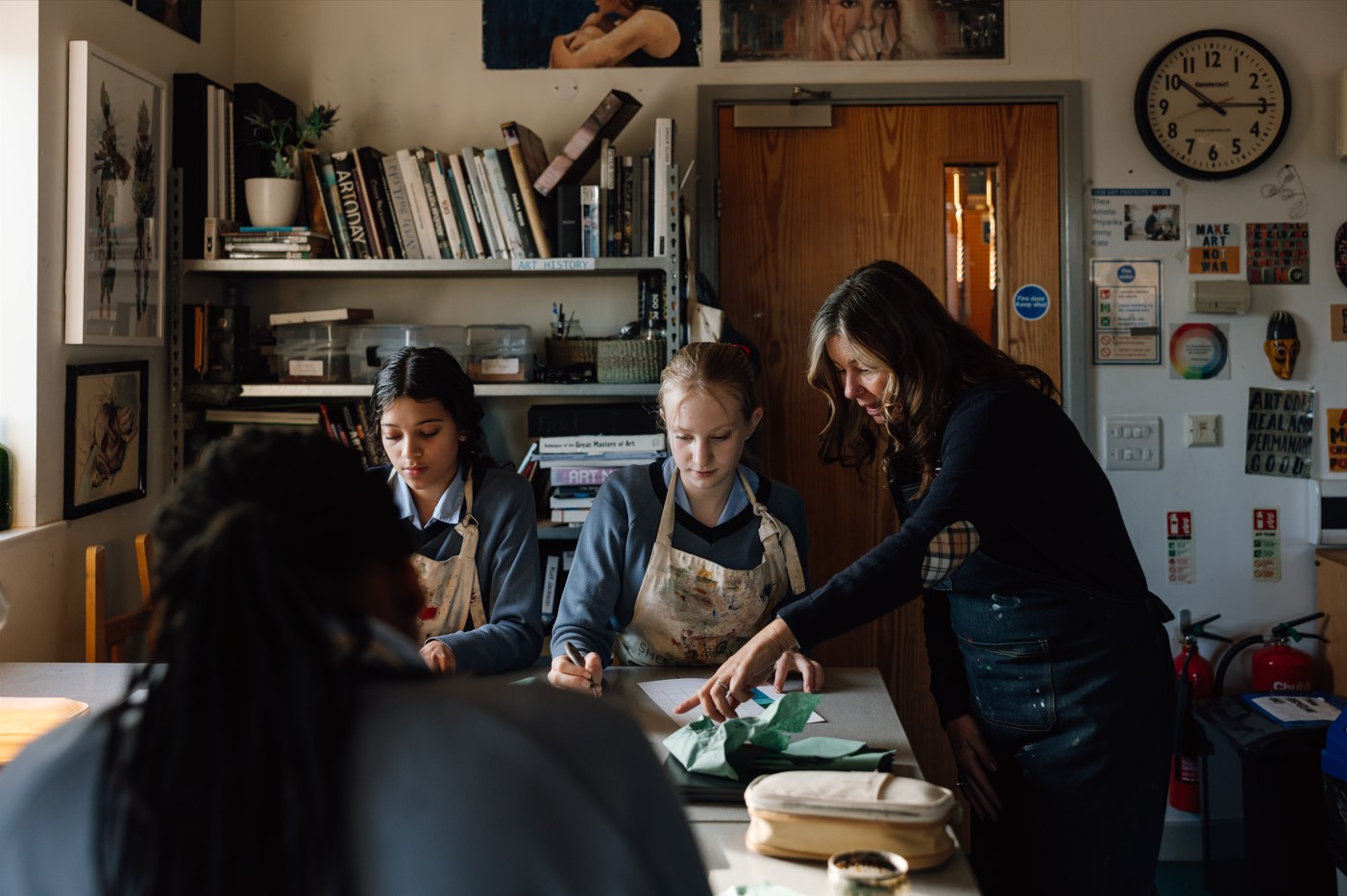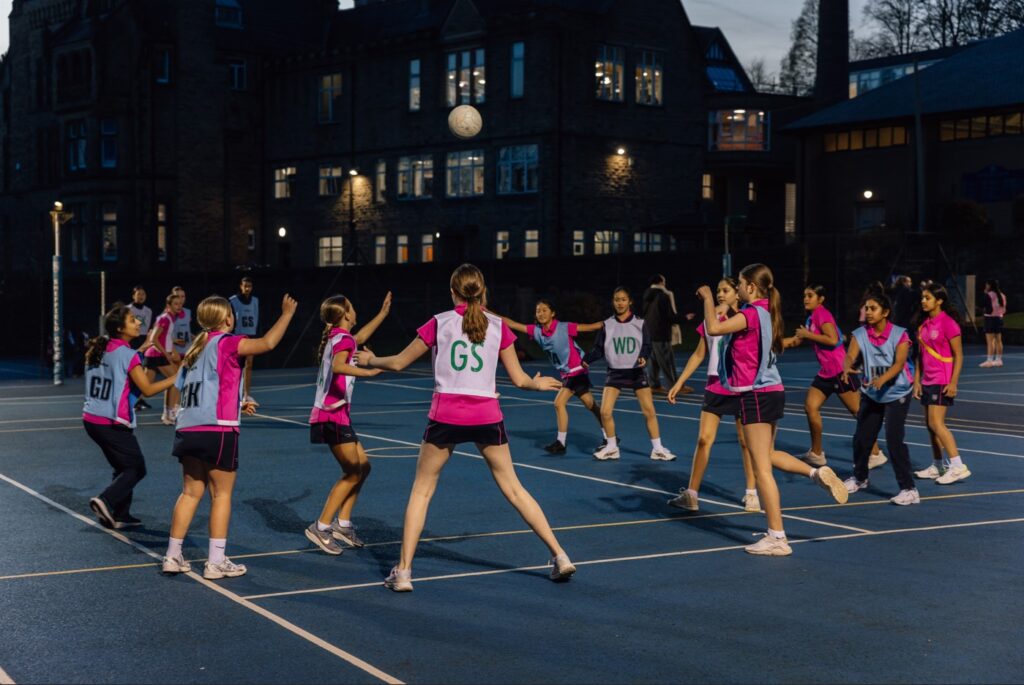
Hillsborough families look to future following “diabolical” police comments
No charges are to be handed to the 12 police officers on duty on 15th April 1989 who would have faced gross misconduct charges under today's law.
A report from the Independent Office for Police Conduct (IOPC) found that responses to the disaster failed on both a procedural and personal level, and added greatly to the trauma and distress of the survivors.
In response, the South Yorkshire Police Federation (SYPF) claimed the report was a "significant waste of time and money", calling the proceedings a "trial by media".
These comments have been met with outrage and anguish by many, with Margaret Aspinall, the mother of 18-year-old victim James, saying at a press conference held in Liverpool that they were an insult to the memory of her son.
Peter Scarfe, the chairman of Hillsborough Survivors Support Alliance, called the comments "disgusting, diabolical and insensitive" to families who have lost loved ones.
The claim to a trial by media especially caused widespread outrage in light of the infamous and entirely untrue 1989 front-page Sun story headlined The Truth which alleged drunkenness, pickpocketing, and fighting amongst Liverpool fans.
These claims, which contradicted the survivor testimonies, were discovered to be made up by the South Yorkshire Police as part of a cover-up, and caused irreparable damage, becoming symbolic of the many failures of justice and policing on the day.
Mr Scarfe said the new IOPC report shows "that the families knew the truth all along," yet no disciplinary hearings will take place, as the 12 officers had all retired when investigations began.
Charlotte Hennessy, whose father Jimmy was one of the 97 victims, told Novaramedia how police had placed him in a body bag while still alive, and left him in his own vomit.
Ms Hennessy reacted to comments from SYPF that the culpable officers were 'very elderly or sadly passed away', saying: "Our loved ones didn't get to live to that privilege."
Ms Aspinall added: "To reach an old age like that, how lucky are they? How dare they insult us like that."
The report also found that 327 statements from the police were amended as part of a defensive approach to control evidence given to previous inquiries.
With no justice due to be delivered to those on duty on the day, the families have chosen to look to the future, calling for former police chief Norman Bettison, who would have a case of gross misconduct to answer to according to IOPC, to be stripped of his knighthood and Queen's police medal.
Mr Scarfe said that it is "wrong and immoral" that he has been honoured, with Ms Hennessy adding: "his alleged dishonesty brings both of these honours into disrepute."

Clive Betts, MP for Sheffield South East, is also calling for change, vocalising that the West stand, where so many lives were ended, or changed forever, remains "untouched" at the Hillsborough ground.
He said: "It is timely to say that 36 years after, the stand is still there, untouched. The new owners have a big decision to make."
He has also publicly stated that he does not feel that the memorial at the ground does justice to the 97 victims, and those they left behind.
Mr Scarfe added how important that the "working-class, football icon" bond between Sheffield and Liverpool continues, stating how much this has helped survivors today.
He said: "We will never forget what the people of Sheffield did, the empathy and compassion they had, and still have, to pull through the tragedy together."

South Yorkshire stars set to shine in the 2026 World Cup
Ar’jany Martha, Rotherham winger, and Tahith Chong, Sheffield United midfielder, have advanced to the World Cup next summer with their country Curacao.
The Caribbean Island has become the smallest country to ever advance to the tournament, with a population of 156,000.
Martha, a former Netherlands under-15, under-16, under-19, showed his excitement for next summer, representing his parents' birthplace.
“Both my parents are from Curacao. Since I was three, I went on vacation there to visit family with my parents. I got to know everybody.
“I had a couple of conversations with my agent and my family and I decided to go with Curacao."
The former Ajax Amsterdam midfielder said it was his dream to qualify for the biggest football tournament in the world: “It’s a great feeling. It’s every boy’s dream to qualify for a World Cup and go to play there. I feel great”
Meanwhile, Tahith Chong only recently made his first cap for the Curacao national team, scoring two goals and adding one assist in that game.
The former Manchester United midfielder is expected by many to be the leading man for the tiny island nation in the biggest stage of world football.
Sheffield United manager, Chris Wilder, says Tahith Chong’s involvement in the world cup is a "fantastic achievement" and said that this will only improve his play.
In the press conference before the Stoke City match, Wilder said this opportunity will help develop his "fabulous future" further, for both his club and for country.
Curacao's fate drawn today
The World Cup 2026 draw set to take place on Friday at 5pm GMT in Washington DC (12:00 local time). The draw for the playoffs will also take place this evening, where Wales, Northern Island and the Republic of Island with hopes to qualify too.
Both Martha and Chong will definitely hope to see where their nations will land in the group stage.
With 48 teams placed into four pots of twelve, it has created debate about the quality of the game.
Arsene Wenger, former Arsenal manager and FIFAs Chief of Global Football Development, said he does not believe that the expansion will reduce the quality of the game and the quality will come out in the four knock out games.
Ar’jany Martha is confident in Curacao's prospect in the tournament, and he looks forward to seeing some of old friends. He said: “I hope we play against the Netherlands. That would be crazy because we’ve got a lot of Dutch players who played in the Netherlands and we want to show them how good we are and what a team we are."
“We like fighting every single game and we’re like one big family. You can see it in the results.”

MP swims 7km to raise £7k for a fully accessible disabled changing room
MP Marie Tidball has swam 7km, the distance between two towns within her constituency, as part of a fundraising campaign to make Stocksbridge Community Leisure Centre more accessible.
The Penistone and Stocksbridge MP, was born with a congenital disability which affects all four limbs and has campaigned extensively for inclusive spaces for disabled people.
Dr Tidball first learnt to swim at the leisure centre as a child, said: "I wanted to give back to a very special place who gave me so much and I wanted to make sure that the facility is accessible.
“It will not only make a difference to children and their sense of dignity and self-esteem but also to disabled parents so it will make a massive difference”
The MP, who's Crowdfunder is still open for donation, swam 280 lengths, the distance between her two constituencies, in just under four hours.
Dr Tidball’s fundraising goal of £7k would contribute to approximately 20% of the total £35,000 cost to convert an existing changing room at the leisure centre into a fully accessible one.
She said: “When I was at school they didn't do any inclusive sports so you were just thrown in with other able bodied classmates and expected to do the sport the same way they did.
"I couldn’t so the only way I could engage was to be the referee, and being out on a freezing cold field and not even able to take part in the game, was undignified and quite stigmatising for me, I found it very upsetting.”
According to a report by Activity Alliance, only one in four disabled children can always join in on school sport.

Dr Tidball said: “The sports changing rooms weren't accessible so even just getting changed for sports was very stressful for me, and I didn't want to have anyone helping me in front of my other classmates.
“By the time I got to Year 9 I stopped doing PE lessons and did art lessons instead so I was essentially excluded from PE.”
As one of the first MP’s to be elected with a congenital limb difference, Dr Tidball is determined to make a difference and promote opportunities around inclusive sports and facilities.
When asked how difficult the swim was, Dr Tidball said: “I was really struggling 160 lengths in and I was panicking because I wasn't even half way, and suddenly someone jumped in and swam alongside me and I realised it was Kim Leadbeater who is another MP who came to spur me on.
“The first section was heavy going but the support from Kim and my family and friends who were there encouraged me.”
After completing the 4.5 mile race, she said: “There wasn't a dry eye in the house in the end.”
Click here to see how she is getting on with her fundraising goal.

Kevin Sinfield surpasses fundraising goal for ultra marathon challenge
An England rugby coach has completed the Sheffield leg of his ultramarathon challenge in support of Motor Neurone Disease charities, smashing his target for donations.
At the time of writing, Kevin Sinfield has already raised over £790,000 in memory of his former teammate, Rob Burrow, as he tackles seven ultramarathons in seven days in seven locations around the UK and Ireland.
Sinfield has expressed throughout the challenge how the memory of his friend has spurred him on in the challenge and said that the work he does is all about "running for a mate."
Rob Burrow, who wore the number seven shirt, was the inspiration behind the challenge and the target donation goal of £777,777.
Burrow tragically died of Motor Neurone Disease (MND) at the age of 41 last year.
On Thursday 4 December, Sinfield ran from location to location across Sheffield, stopping and talking to people, and thanking his supporters along the way.
As he arrived at the University of Sheffield, Sinfield said: "You should be proud of your city, it's a lovely city that cares about the MND community."
The former Leeds Rhino player chose the locations for this year's annual challenge to ensure that people in the MND community feel seen and supported.
He said: "We have to make sure that everyone's important, everyone's loved, and everyone's cared for."
Members of the MND community came out in their hundreds, reflecting the support that the challenge has brought to the city.

Tom Davies, a former student at the University of Sheffield who has MND, was there to talk to Sinfield and to bang the drum seven times to send him off to his next location.
Around the city, people made the special journey to come out and show how much Sinfield's efforts are appreciated.
Jenny Godson, who was cheering Sinfield on from the sidelines, said that she had come from Wakefield to see and support the team in their challenge.
She said: "We watch it every morning on Breakfast and so we wanted to come down and give our support.
"I think it's absolutely fabulous that it continues to put this attention on fighting MND and it's just wonderful to see so many people here supporting."

Charity fundraisers holding banners and collecting donations were at every location to spread awareness.
Stacey Kirkpatrick, Relationship Fundraiser for the Motor Neurone Disease Association (MNDA), said that she was drawn to this event through for both personal and professional reasons, following the loss of her Mum.
She said that it was encouraging to see so many people out in support of Sinfield and his fundraising, and mentioned how even the Fire Brigade were there to offer their support.
She said: "Everyone is behind him and everybody is out cheering."
You can donate £10 to Sinfield's challenge by texting KEVIN10 to 70143.

Local Independent School wins Times Parent Power award
Reported by Jack Landale and Gethin Spencer
For the second time in three years, Sheffield Girls' GDST has been awarded the 'Independent Secondary School of the Year in the North' following its "record breaking" exam season results.
The school, which has been teaching since 1878, has enjoyed an impressive academic year, with 80% of GCSE grades in the 7-9 bracket compared to the national average of 22%.

We spoke to a “delighted” Rebecca Mills, Director of Marketing and Communications, who said the award “not only reflects the incredibly hard work of our staff but the amazing achievements of our girls”.
She said: “Our GCSE and A-level results this summer were nothing short of exceptional and record breaking, both for our region and our school.”
The school also has a “Girls of Steel” character education programme, running from Junior and Infant school all the way to sixth form, and was recently touted as an exceptional strength in the schools December inspection report.

The school has achieved its reputation through a focused and specific learning programme for the girls.
Mrs Mills commented how “our pedagogy in the classroom as well as our learning environments are built specifically for the way girls learn best and I think the proof is in the pudding”.
Newly appointed Head Alex Wilson highlighted the importance of the school's unity, and in a released statement on the school website said: “While our exceptional GCSE and A Level results are rightly celebrated, they represent only a fraction of what makes our school truly special.
“What defines us is the unique way our girls champion one another, embrace challenges, and ultimately leave us equipped to shape the world with confidence and purpose.”

Proposed Sheffield Town Hall regeneration could total £450 million
Sheffield Town Hall is set to be considered for a costly regeneration project, 128 years since it was opened by Queen Victoria in 1897.
On Tuesday, Sheffield City Council announced that the Strategy and Resources Policy Committee will decide whether the regeneration of Sheffield Town Hall will continue into its next phase at its next meeting on 10 December.
If it is to ensure the long-term future of the building, early budget reports indicate that the project could cost between £340 million and £450 million, with this set to be updated after concept designs are produced in the next phase.
Reactive measures to repair the Town Hall currently cost the council approximately £700,000 a year.
Councillor Janet Ridler, the council's Heritage Champion, said: "Sheffield Town Hall is of unique importance to the city and its residents.
"It’s a building that has welcomed royalty and heads of state, survived two world wars, and which symbolises Sheffield’s rich history, whilst serving as the democratic centre of the city."
Councillor Tom Hunt, leader of Sheffield City Council and chair of the Strategy and Resources Committee, added: "The restoration of the Town Hall will be an investment for the future of the building but also of the city centre, continuing the fantastic regeneration we have already seen taking shape."

When asked by the Sheffield Wire, some Sheffield residents expressed concern at the price tag, while another, Michael Vickers, 79, noted that "Sheffielders love to grumble".
Mr Vickers went on to say "I have sort of fond memories of that place," as he collected his marriage certificate from the building after getting married in the old Registry Office, the 'Wedding Cake,' which has since been moved to the Town Hall.
Now, part of the plan to raise funds for the project is to further reduce the number of buildings in the council estate.
When asked for comment about this, Sheffield City Council said: "The Town Hall refurbishment is under the umbrella of a wider asset strategy and accommodation review, which is tasked with developing a funding approach that allows the council to have a well maintained, fit for purpose, and financially sustainable building estate.
"The review is looking at consolidation of the estate into a smaller number of buildings, which includes office buildings."
Other sources of funding involve borrowing, in line with the council's long term plans, as well as fundraising through events and heritage grants.
The council is also engaged in an "on-going dialogue with the National Lottery Heritage Fund."
The Town Hall is one of just two Grade I listed buildings in Sheffield, with the other being Sheffield Cathedral.
In May, the first step of the plan took place as architects, FCBStudios, were appointed to conduct an initial investigation of the building, the findings of which are being considered by the Committee.
Sheffield Wire contacted FCBStudios, but they declined to comment.

B. Braun Sheffield Sharks clean sweep Super League Basketball monthly honours
B. Braun Sheffield Sharks secure a monthly double as Rodney Chatman III nabs the Molten Player of the Month and Atiba Lyons snags the Kevin Cadle Coach of the Month.
The Sheffield basketball team went flawless in November, winning all four games to turn the season around and sit at 7-4 after a slow start.
B. Braun Sheffield Sharks rose to second and stayed on the tails of the London Lions in the championship standings.
With this feat, head coach Atiba Lyons was named the Kevin Cadle Coach of the Month by the Super League Basketball, over London Lions’ Tautvydas Sabonis and Bristol Flyers’ Andreas Kapaulas.
His rigid schemes and mentality have made the Sharks one of the best defensive units in the league. The Sharks only conceded 77 points per game during this four-game winning run.
On the flip side of the ball, point-guard Rodney Chatman III led the offence incredibly, averaging 20.0 points, 7.0 boards and 5.3 assists per game, earning him the Molten Player of the Month award.
The former Vanderbilt star dominated the offensive game with his incredible playmaking skills. He has emerged as one of the league’s best distributors and versatile bucket-getters.
Chatman’s biggest performance came in a 35-point eruption, including six triples, to sink Manchester Basketball on Manchester Heritage Day.
B. Braun Sheffield Sharks will host Newcastle Eagles on November 5th at the Canon Medical Arena, looking to grab win number five in a row with the backing of Shark Nation.
In their previous matchup in mid-November, the Sharks narrowly defeated the Eagles behind Rodney Chatman III’s double-double with 17 points and 14 assists.
His backcourt partner, Dirk Williams, also picked up a game-high 26 points, while Nick Kern Jr. provided a bright spark off the bench with 24 points.
Feature image - Courtesy of the Sheffield Sharks

Sheffield United look to tie down star players to new contracts after recent surge in form
Three consecutive wins has attracted interest from clubs for Patrick Bamford and Jairo Riedewald, who are both on short-term contracts.
Manager Chris Wilder said "they've been outstanding" in their short periods at Sheffield United and is trying to tie them down to new deals over the coming weeks.
The contracts of Bamford, 32, and Riedewald, who is 29, both expire on January 1. They had both been free agents when they signed for the Blades recently after the transer window had closed.
A resurgent Sheffield United will look to make it four wins in a row against an unpredictable Stoke City on Saturday afternoon.
Nine goals and two clean sheets in the last three matches have lightened the mood at Bramall Lane, elevating the team to 19th place after a poor start to the season under former manager Ruben Selles.
Competition for places in the forward line has increased in recent games, and with three games in the next week, Wilder will be sure to rotate his side.
Forward Tom Cannon has also turned his form around with two goals in his last three games, gaining praise from the Blades manager. This is a big improvement from his previous 27 appearances, in which he scored one goal.
Asked about whether there is a selection dilemma up front, Wilder said: "We've created big chances, but it's the final chances that decides the outcome of the game."
With the club now sitting two points above the relegation zone, Chris Wilder’s side will be looking at progressing towards the play-off places.
The Blades manager said he sees Sheffield United as a top 25 club in the country, believing recent form can help rejuvenate their push for promotion after finishing third last season.
Wilder said: "It's been a difficult start to the season, but we’re doing our best to reset and move it forward.”
Talking about the challenge that Stoke pose, Wilder said he sees Stoke as a big club that belongs at the top of the table, describing manager Mark Robins as a “good manager who has recruited really well."
Stoke have struggled to break into the top half of the Championship in recent seasons, despite being a force in the Premier League less than a decade ago.
As the World Cup draw takes place later on Friday, Wilder said Tahith Chong representing Curucao is “an amazing achievement” and the experience will only improve him as a player with a “fabulous future.”

Steelers go for four on the bounce as Teddy Toss looks to bring festive spirit to the Utilita
The Sheffield Steelers are preparing for their annual Teddy Bear Toss Night on Saturday against Coventry Blaze, as the club continues to help local kids "feel that joy" this festive season.
The Teddy Bear Toss will see the over 8,000 strong 'Utilita Arena' crowd throw stuffed toys down onto the ice after the first steelers goal, with the toys going to children who may go without presents this Christmas.
Steelers manager Aaron Fox, who is in his sixth year in charge said: "It has been something that has been, over the last few years, very prominent throughout the hockey world. And you see how impactful it is to the children that need new toys over the holiday period."
Along with the Teddy Toss, the Steelers are raising money by running their biggest raffle yet by giving away special edition shirts, unique to each player.
The money raised by this will go towards the Steelers continued partnership with the charities "Cash for Kids" and "Mission Christmas".
Steelers forward Evan Jasper said: "We are very fortunate to live the lives that we live, and if we can do anything that we can to help others in need.
"I know around the holiday season, there's a lot of people enduring tough times, so to be able to do a teddy bear drive like this and see some kids smile on Christmas, I think that's really important."

The Steelers come into Saturday night's 7pm Face Off on a three game winning streak, including a 5-1 victory over the Blaze last time out.
Sheffield's defence has been strong all season long, and Fox has given special mention to the addition of backup netminder Eamon McAdam with helping to sure up that side of the game.
"Having a guy like Mac back there that can step in and give [Matt] Greenfield a rest of some key night , he's 3-0 in league play and is leading the league in goals against and save percentage [per game]. That's a complimentary piece for us."
The game against the Blaze is the first match of a double header for the Steelers this weekend, as they also face the Dundee Stars on Sunday at the Dundee Ice Arena.

“This is proof that the hobby is not dying”: Peter Waterman and Jools Holland at grand opening of model train shop
Hundreds of people queued in the rain on Saturday for the grand opening of Rails of Sheffield, a model train shop, to be one of the first in the new store.
At 10am, music industry legend and president of the Railway Benefit Fund, Peter Waterman OBE, cut the ribbon to officially launch the store at Sheffield Railway Station.
When asked about the store he said: "It's fantastic! Good job it's not near my station, I would never get on a train, I would be in here all the time.
"I think railways are a very strange thing, you either love them or hate them, and I think the hobby goes through fads, it is very strong at the moment."
This is the second of Rail of Sheffield's stores to open, with their first on Chesterfield Road having been serving customers for 55 years and holding the largest stock of model railway products in the UK.
Listen to Jools Holland, railway enthusiast and frequent shopper at Rails of Sheffield's, opinions of the store below:
The store is the first of its kind to be located in a train station.
Director of the store, Tracy Barber, said there was talk of the new shop being on platform 5, but, after that plan fell through, the unit by the south entrance seemed like a better option as it is more accessible to people passing through.
She said: "The idea was to highlight this great hobby to people that come through the station."
Customer, and railway preserver of the The 2874 Trust, David Holmes, said: "I think it's great, I'm really pleased for them, I hope it is a success, it has to be."
Richard Brighton, the retail manager, explained how important it is for people to have the ability to look at and touch the products in person before they spend their money, as well as having the opportunity to talk with experts for advice or to simply share their love for the hobby.
Watch the grand opening here:

Rise in female members to thank for resurgent Sheffield tennis club’s award
A North Sheffield club has won a 'Club of the Year' award a year and a half after a fundraising effort saved them from collapse.
Karen Lyon, the chairperson of Thorncliffe Tennis Club in High Green, said she was "extremely proud" that the club had been recognised by the Sheffield and District Lawn Tennis Association (LTA).
Ms Lyon credited the increase in members for the club's success, stating that membership has almost doubled in the past year from 52 members to 92 now.
She said the increase in female members, which clubs in the area have all struggled with recently, was vital to the health of the club. The recent hiring of coach Helen Johnson played a major role in this.
When asked if she believed to have played a role in the success, Ms Johnson said: "I'd like to think so. I think I help [the female members] to enjoy it."

At the start of 2024, the courts were in poor condition and the club was struggling to attract new members. This prompted the club to begin crowdfunding to save the club and refurbish courts that have been there since 1949.
In just a few months the club was able to raise £45,000, which was way over the target figure of £25,000, and allowed them to resurface the tennis courts which are now in great condition.
The community rallied around the club, with local churches and other clubs contributing with sizeable donations to ensure the club's survival.
Ms Lyon said she was extremely grateful for the community response, but the next step was to make the club sustainable.
She said: "We can't go back to the community again in 15 years asking for help."
The next target for the club is to improve the club's facilities, including working on the clubhouse.
Over 50 per cent of its members are female, and Thorncliffe has recently brought disability tennis to the eastern half of Sheffield, having seven disabled players on the court.
Ms Lyon said this meant it was crucial that they had facilities that created a safe and welcoming space for everyone.

Thorncliffe have become just the fourth club in Sheffield to win the award three times, following Abbeydale, Brentwood, and Hallamshire.
The club will now be nominated for the regional South Yorkshire awards, before potentially making it on the shortlist for the national awards.

